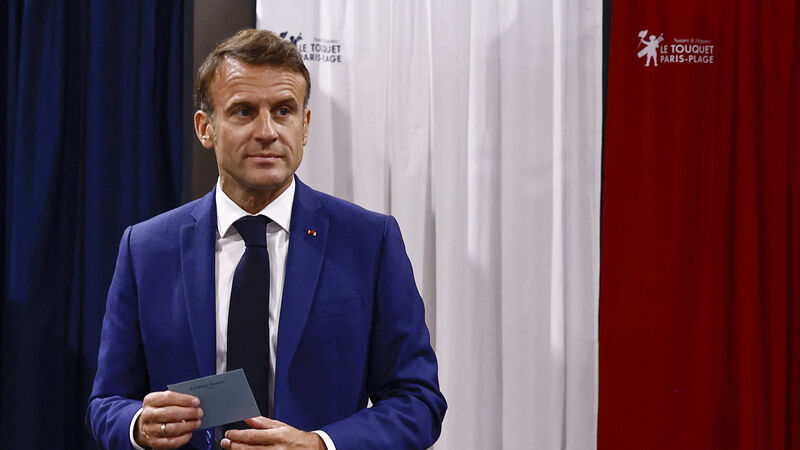As far-right support surges, what's next for France?

French President Emmanuel Macron. Picture: AP
Marine Le Pen’s National Rally (RN) has won a historic victory in the first round of voting in France’s snap parliamentary elections.
The far-right party came first in the vote for the French National Assembly, drawing an unprecedented 12 million votes, almost eight million more than they acquired two years ago.











